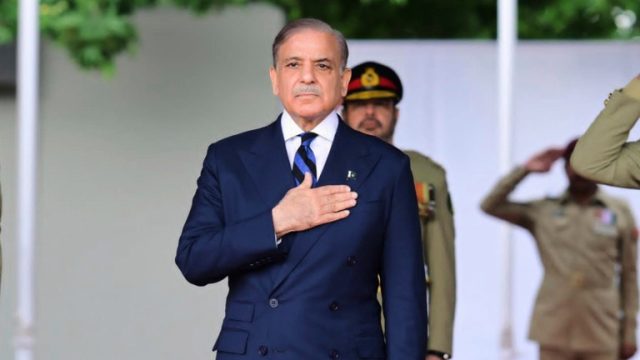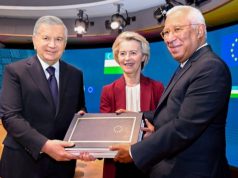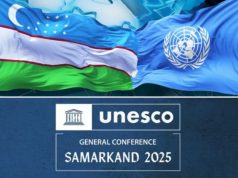By Rehan Khan
ISLAMABAD, Sunday, May 25, 2025 (WNP): Prime Minister Muhammad Shehbaz Sharif has once again proven his leadership as a seasoned crisis manager, responding decisively to recent Indian aggression with a blend of strategic foresight, national resolve, and statesmanship. In a historic address that reverberated across regional and global corridors, the Prime Minister issued a bold warning to New Delhi: if India does not cease its provocations, Pakistan holds the potential to reshape the geopolitical map — leaving no place for India on the soil of the earth.
The powerful message, delivered in the wake of cross-border tensions, not only signaled Islamabad’s preparedness to defend its sovereignty but also demonstrated the Prime Minister’s capacity to rise to critical national moments with clarity and confidence. His words, though assertive, were measured — part of a broader diplomatic doctrine rooted in deterrence, regional peace, and strategic depth.
This is far from the first time Shehbaz Sharif has displayed this God-gifted ability to manage crises. Throughout his political journey, he has been a voice of reason and reconciliation, particularly during periods of institutional tension. Notably, he played a pivotal role in maintaining harmony between state institutions during times when his elder brother, former Prime Minister Muhammad Nawaz Sharif, was removed from office on three separate occasions under controversial circumstances.
Shehbaz Sharif, widely regarded as a political troubleshooter, worked tirelessly behind the scenes to bridge civil-military divides, ensuring continuity of democratic processes and shielding Nawaz Sharif’s political legacy. His pragmatic approach helped defuse tensions that could have otherwise led to deeper political instability.
Economically, the Prime Minister has also steered the country away from the edge of financial collapse. Through business-oriented policies, fiscal reforms, and an unrelenting focus on governance, Shehbaz Sharif has re-energized key sectors of the economy. His “ease of doing business” initiatives have yielded visible results, with inflation showing a downward trend — bringing much-needed relief to citizens in urban and rural areas alike.
Markets have regained confidence, investors are cautiously returning, and small businesses are showing signs of revival. If this momentum continues, experts predict that Pakistan is well on its way to becoming a regional economic hub — a transformation that may attract global attention and investment in the years to come.
In foreign affairs, Shehbaz Sharif’s leadership has marked a notable departure from the confrontational diplomacy of his predecessor. Within a short span of time, he has rebuilt cordial and balanced relations with the global community — a feat rarely achieved at such a pace. His outreach has restored Pakistan’s credibility, especially with major powers like China and the United States, whose relations had suffered under the previous Pakistan Tehreek-e-Insaf (PTI) government.
Under Imran Khan’s tenure, Pakistan’s foreign policy became increasingly erratic — alienating traditional allies like China, unsettling the balance between Moscow and Washington, and undermining Islamabad’s strategic partnerships. Prime Minister Shehbaz has since recalibrated Pakistan’s external engagements, fostering a diplomatic environment based on trust, mutual interest, and regional cooperation.
On the domestic front, Shehbaz Sharif has been actively engaged in a coordinated effort with state institutions to combat the rise of digital misinformation and political polarization — phenomena amplified during the PTI regime. The current government has been working to counteract what it terms “digital terrorism,” aimed at misleading the youth and destabilizing democratic discourse.
Due to his balanced, pragmatic, and firm leadership, Prime Minister Shehbaz Sharif now holds a prestigious place not only within Pakistan’s political landscape but also among the global community of leaders. His stature as a statesman continues to grow, as does the belief that under his leadership, Pakistan can navigate both internal challenges and external threats — with strength, diplomacy, and vision.
Note: The author of this article is a seasoned journalist with a sharp eye on political and global affairs. He is actively contributing to reshaping the media landscape at both national and international levels.




